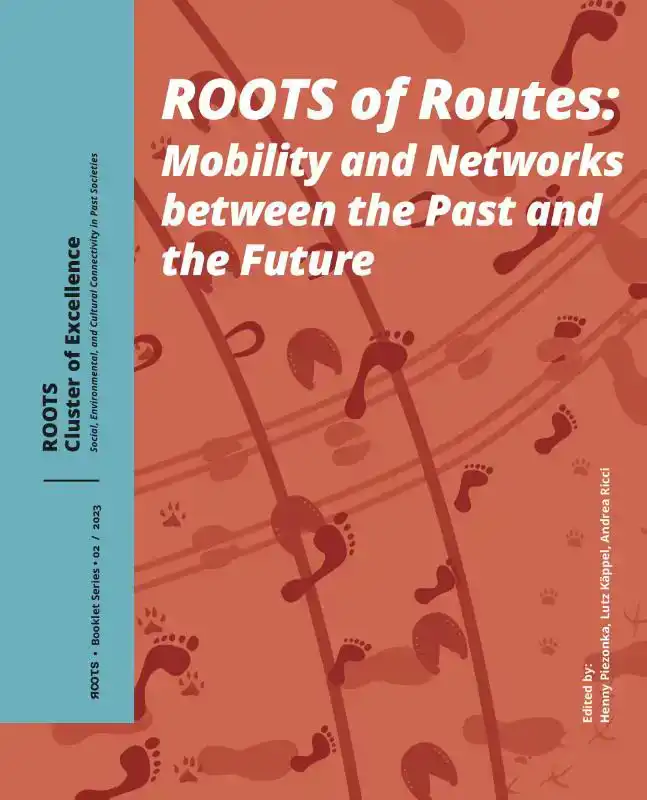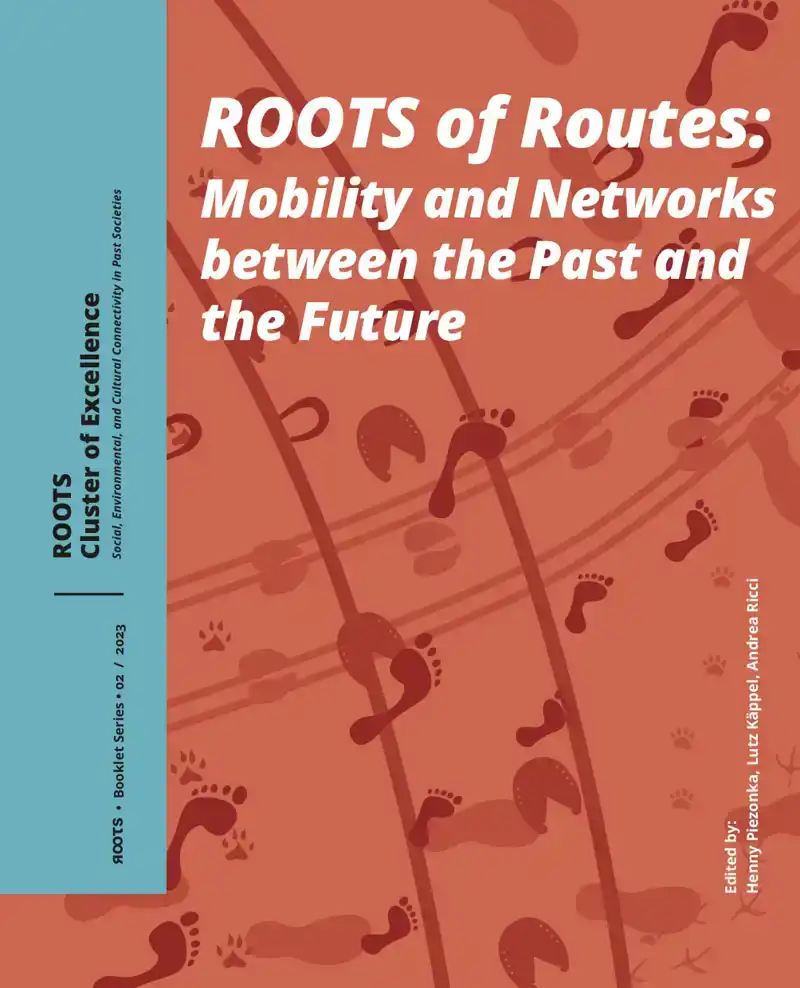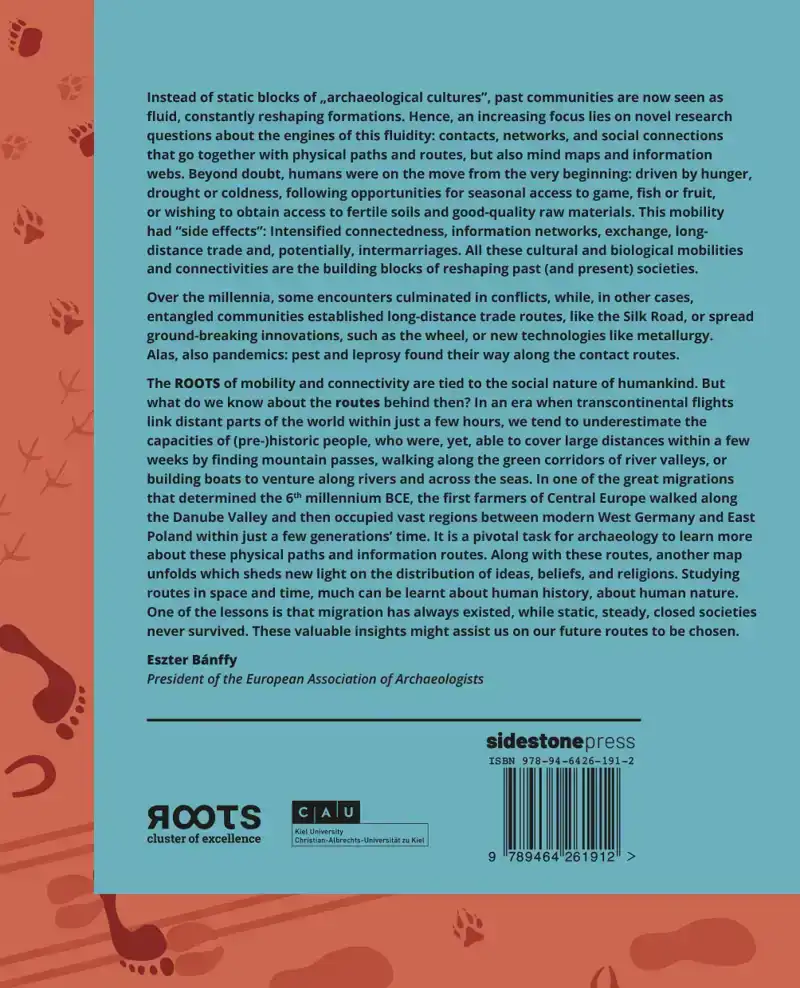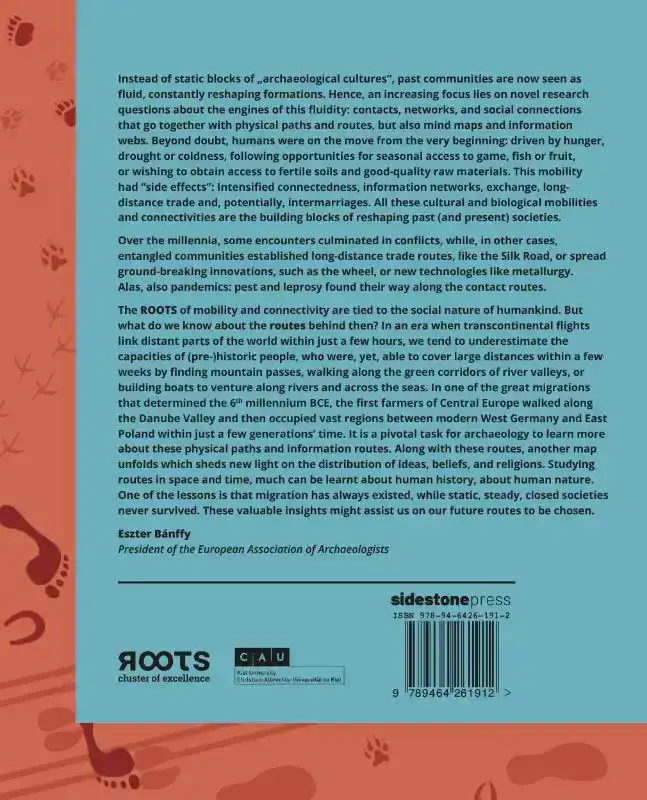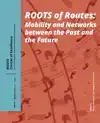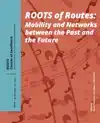- Engels
- Pockets
- geschiedenis alg.
- archeologie
- ROOTS OF ROUTES
SIDESTONE PRESS
ROOTS OF ROUTES
30,00incl BTW
Vertrouwd sinds 1927
Persoonlijke aandacht en advies
Vanaf 17,50 gratis verzenden NL & BE
Meer dan 150.000 artikelen online
Omschrijving ROOTS OF ROUTES
People and spaces have always been connected by routes: paths, trails, roads - on land, on water and sometimes even through the air, over hill and dale as well as over wooden planks, pavement and asphalt. Humans and animals followed them. The routesdirected the circulation of raw materials and goods. They determined the paths on which humans fled from misery and danger, and they constituted the physical and imagined veins of networks between communities. All these cultural and biological connectivities are the building blocks of reshaping past (and present) societies.
In this booklet - the second in the booklet series of the Cluster of Excellence ROOTS at Kiel University - we uncover the roots of these routes: From the earliest stages of the Stone Age to the present day, there have been well-defined routes, which enabled the exchange of things, practices and knowledge between people. Many of these ancient routes are not only still visible today, but even continue to operate:from the Silk Roads spanning the continents to the local routes of the Ox Trail in Schleswig-Holstein, from the waterways of Mesopotamia and the river worlds of the forest zone to the spiritual routes of philosophical contemplation. Moreover, isolation and disruptions of formerly established routes, for example in the Viking diaspora, have also proven to be directional for cultural developments. In a kaleidoscope of perspectives, the roles of landscape and climate are examined. Special attention is given to those routes along which objects, rituals, and therefore also cultural practices were transported. Religious rituals, knowledge, even philosophical insights are shown to have their roots in movement along routes.
These and the many other topics in this booklet illustrate to what extent the development of human societies is determined by the routes through which they are connected - or not connected. Modern narratives of a limitless, openly accessible world, grounded in an urban-industrialised experience (or agenda), can get cracks if we look deep enough into the past. It is the paths, the very concrete connections in a material as well as a spiritual sense that influence human lives, their existence and their development. Communication and dialogue along the routes and networks must be maintained, as they were and are the guarantors for a good coexistence of humans in this world.
In this booklet - the second in the booklet series of the Cluster of Excellence ROOTS at Kiel University - we uncover the roots of these routes: From the earliest stages of the Stone Age to the present day, there have been well-defined routes, which enabled the exchange of things, practices and knowledge between people. Many of these ancient routes are not only still visible today, but even continue to operate:from the Silk Roads spanning the continents to the local routes of the Ox Trail in Schleswig-Holstein, from the waterways of Mesopotamia and the river worlds of the forest zone to the spiritual routes of philosophical contemplation. Moreover, isolation and disruptions of formerly established routes, for example in the Viking diaspora, have also proven to be directional for cultural developments. In a kaleidoscope of perspectives, the roles of landscape and climate are examined. Special attention is given to those routes along which objects, rituals, and therefore also cultural practices were transported. Religious rituals, knowledge, even philosophical insights are shown to have their roots in movement along routes.
These and the many other topics in this booklet illustrate to what extent the development of human societies is determined by the routes through which they are connected - or not connected. Modern narratives of a limitless, openly accessible world, grounded in an urban-industrialised experience (or agenda), can get cracks if we look deep enough into the past. It is the paths, the very concrete connections in a material as well as a spiritual sense that influence human lives, their existence and their development. Communication and dialogue along the routes and networks must be maintained, as they were and are the guarantors for a good coexistence of humans in this world.
Reviews
0.0/5.0
Gemiddelde uit 0 reviews
Meest behulpzame reviews
Nog geen reviews geschreven

